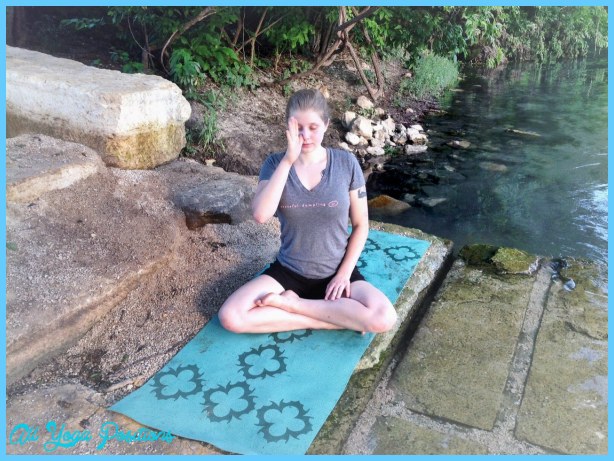Well, I am piling difficulty on difficulty in the elaboration of my theme, and I hope I will not discourage you too much by this kind of talk. Why should you feel discouraged? On the other hand, why should you be unnaturally encouraged? Neither reaction befits a strong soul. And you must remember that whatever path you follow you can never find a substitute for strength. Many people think one religion is very difficult and another is easy. That could be true only in the sense that the easy’ religion is more in keeping with one’s own temperament. One feels more at home in it; therefore it does not seem so difficult just as we can easily speak the language we are born in. But one should not conclude that just because we feel at home in a certain religion its path will always be easy for us. When we have to take further steps, there will be struggle. One must be ready for that; therefore one has to embrace the life of religion with strength and not with weakness. Always and everywhere quiet, persistent strength is the answer. There is no substitute for it. All the tall talk we hear: Take refuge in God, everything will be all right’ such talk, I sometimes think, is just selfdeceived and deceiving conversation.
You see, whenever we think that God will do something for us, that we don’t have to worry about it, when we look back, we find we have been saddled with the tremendous obligation of giving up all initiative of our own; in everything we have had to become reliant on God. People speak of selfsurrender! We don’t have to do anything; we shall surrender ourselves to God, God will do it for us.’
You think it is easy? As long as we have a desire of our own, as long as we have all these turbulent senses, which we call our senses, as long as we say I see, I hear, I think, I want’ as long as we have these notions, do you think we can surrender ourselves to God? You might ask, Then what are the teachers talking about when they speak of self-surrender?’ They are speaking of it as a practice, an effort. In everything we should make an effort to say, No, let Him do it; not I, but Thou’. Whenever we find that we go ahead with our own self-assertion and self-will, this practice of self-surrender makes us stop and say, No, let His will be done’. And we pray to Him, Make me do things as You will, not as I will.’ And of course eventually we have to give up all our own personal will. We have to learn to say to ourselves, I don’t want anything. It is as You want.’ Don’t you have any preferences of your own?’ No, Lord, I haven’t any preference; whatever You want me to do I shall do.’ That is how it happens. But before we reach this state of complete self-surrender, complete self-abnegation, where no longer any self remains to call our own, we have passed through a lot of stages and a lot of struggle.
Now, in the Upanishads the road has been called sharp as the edge of a razor’. What is the significance of this? Since the road is also said to be duratyaya, very difficult to tread’, you almost have a picture in your mind of someone actually walking on a razor’s edge. Or it might mean that a razor’s edge is so very fine that if, when shaving, you hold your razor at a slightly wrong angle, you will make a gash: it’s altogether a bloody affair, you see. That could be one of the meanings. Generally, however, the verse is said to mean that the way is like walking on the sharp edge of a razor.












